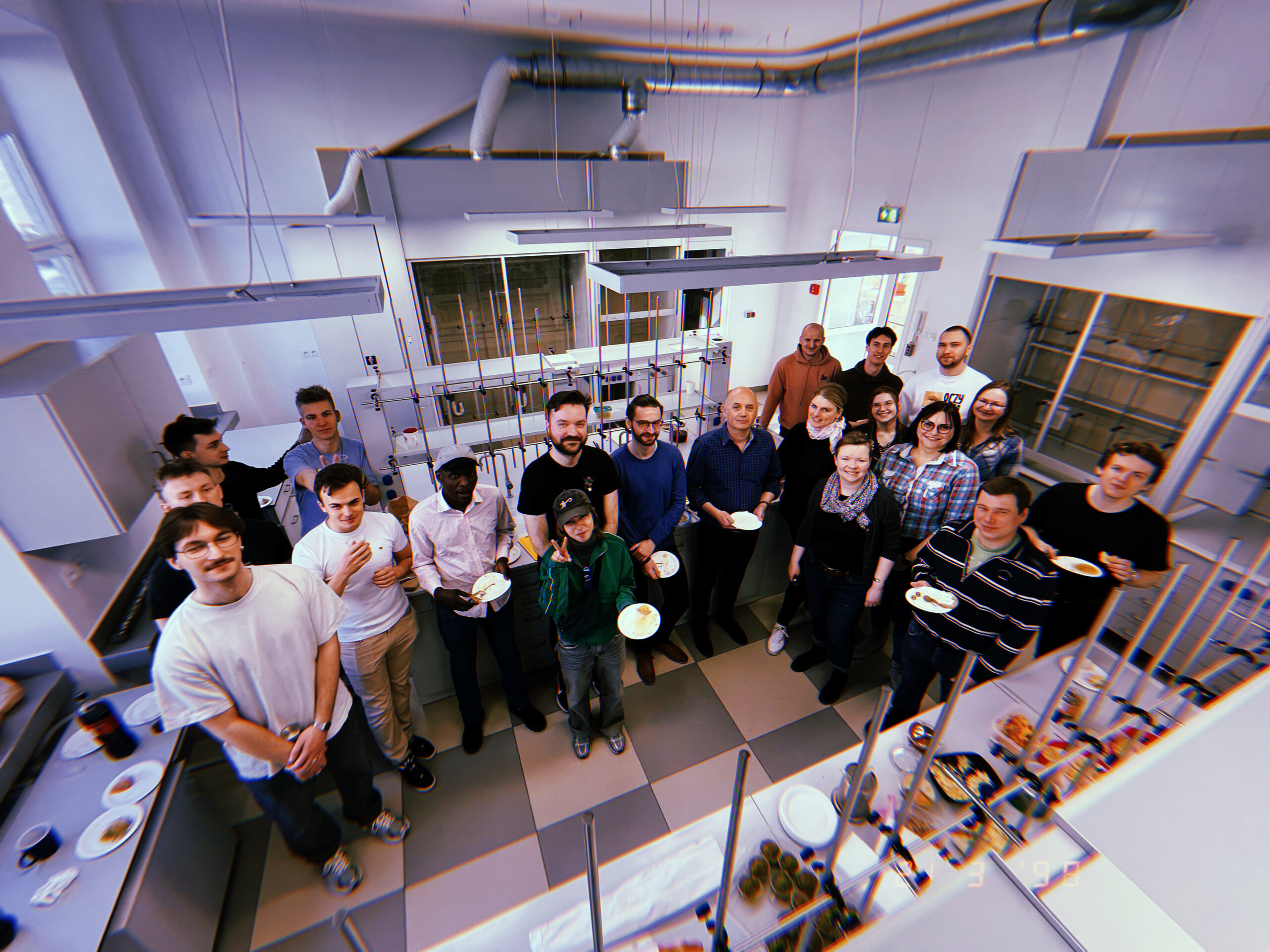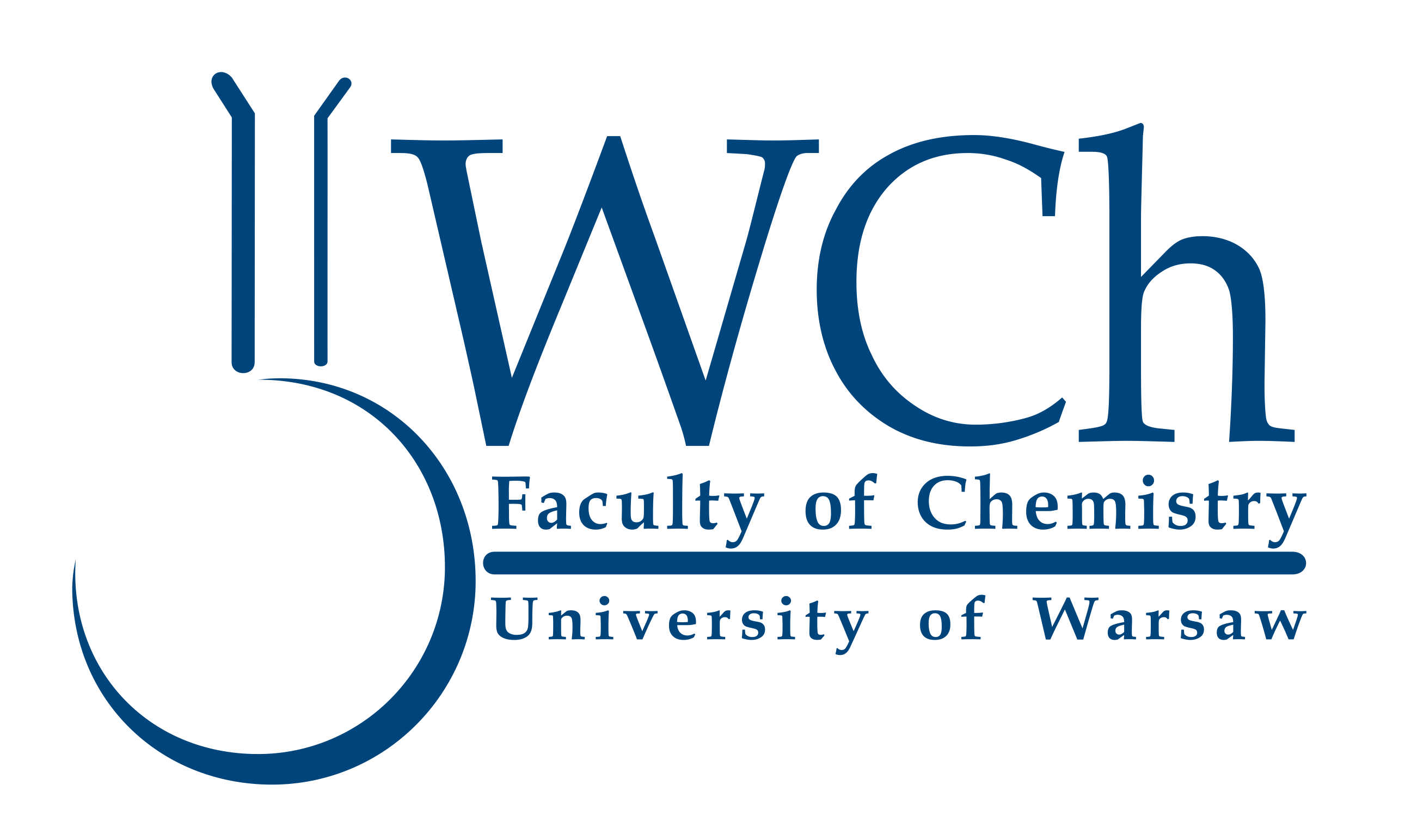Litwinienko’s Group
| Litwinienko Research Group
Group members
Group Leader:
Permanent Staff:
Prof. Andrzej Kaim
Dr Hanna Wilczura-Wachnik
Dr Eng. Katarzyna Jodko-Piórecka
Dr Agnieszka Krogul-Sobczak
Dr Piotr Piotrowski
Dr Jakub Cędrowski
Dr Adrian Konopko
Artur Gajda
PhD Students:
MSc. Jarosław Kusio
MSc. Paweł Przybylski
MSc. Simon Lukato
MSc. Wojciech Witkowski
MSc. Eng. Michał Żebrowski
Students:
Martyna Boruc
Sandra Denis
Hanna Kutrowska
Piotr Łętowski
Artur Stec
Natalia Szczepańska

Research
Subprogram I:
Catalysis and nanotechnology
- Development of new, environmentally friendly methods of obtaining chemical compounds important in the industry;
- Design and synthesis of new catalysts for selected organic processes;
- Synthesis and characterization of metal nanoparticles;
- Activation of small molecules (CO, CO2, O2);
- Organic processes carried out under increased pressure in the presence of nanocatalysts;
- Functionalization of C60/C70 fullerenes, Sc3N@C80, Lu3N@C80, Gd@C82 metal fullerenes and graphene for applications in photovoltaics, catalysis and medicine;
- New materials for applications in optoelectronics – structural research and electronic properties using DFT computational methods.
Subprogram II:
Interfacial processes in biomimetic systems
- Studies of the kinetics of lipid oxidation;
- Investigation of phenomena occurring at the liquid-liquid interface, in particular the interfacial transport of biologically active molecules;
- Studies of qualitative and quantitative description of small molecules between coexisting solvent phases and micellar phases;
- Study of encapsulation of biologically active molecules in micellar structures;
- Study of interactions of substances with potential antioxidant properties with model lipid membranes;
- Influence of solvent effects on the inhibition of the autooxidation process.
Subprogram III:
Chemistry of antioxidants
- Physicochemical basis of antioxidant activity: from solvent effects and mechanistic studies to interfacial phenomena in biomimetic systems;
- New hybrid antioxidants containing nitroxide and phenolic functional groups – research in chemical and biological systems;
- New nanoparticle antioxidants: design, synthesis and study of the mechanism of action for potential applications;
- Study of the fluorescent properties of the peroxyl radical sensor as a marker of oxidative stress in lipid membranes;
- A senolytic nanoplatform based on electrospun nanofibers delivering nutraceutical derivatives to remove breast cancer cells with chemotherapeutic-induced aging;
- Searching for mechanisms of antioxidant activity of selected organic nitrogen and sulphur compounds.
Subprogram IV:
Synthesis of novel antioxidants
- Design and synthesis of peroxyl radical sensors based on BODIPY;
- Construction of new hybrid antioxidants containing nitroxide and phenolic functional groups;
- Modification of well-known natural antioxidants (based on flavonoids, isothiocyanates).

